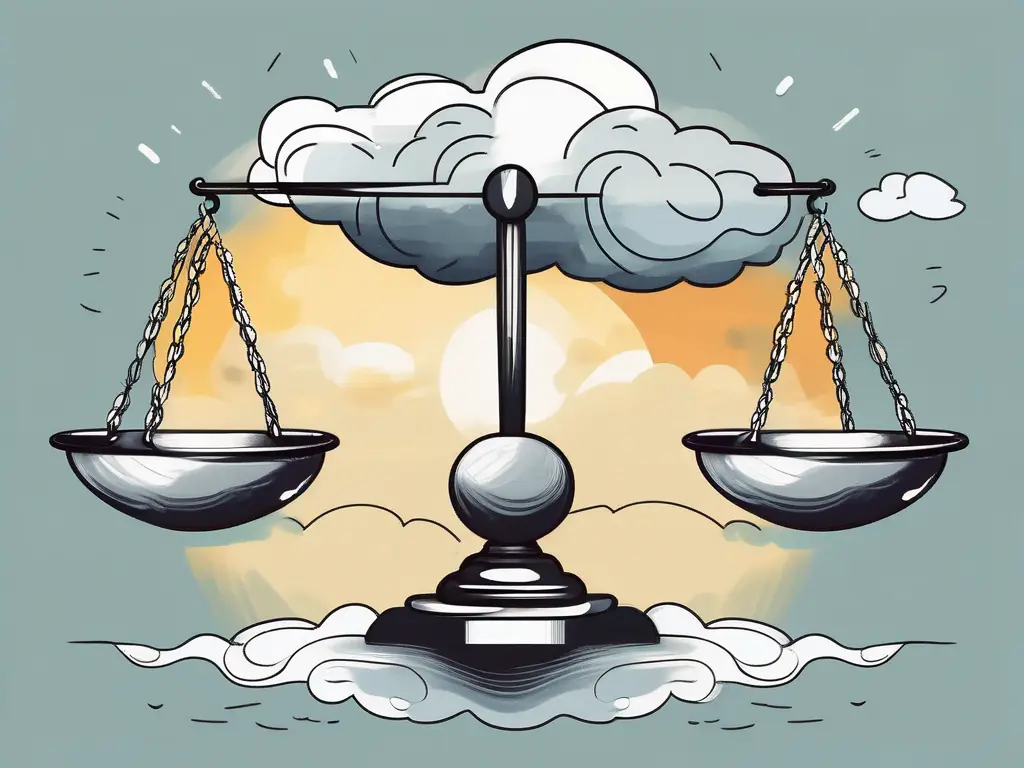Emotions are a fundamental aspect of being human. They color our experiences, influence our decisions, and shape our relationships. But sometimes, our emotions can feel overwhelming, causing us to react impulsively or irrationally. This is where emotional regulation comes into play – the ability to effectively manage and understand our emotions. In this guide, we will explore the importance of emotional regulation, delve into the science behind it, discuss its benefits, provide strategies for improvement, and help you overcome challenges along the way.
Understanding Emotional Regulation
Defining Emotional Regulation
Emotional regulation refers to the process of recognizing and managing our own emotions. It involves understanding the triggers that elicit specific emotions and adopting healthy coping mechanisms to respond to them. Essentially, it’s about taking control of our emotions instead of letting them control us.
Let’s dive a bit deeper into the concept of emotional regulation. Imagine a scenario where you receive some disappointing news. Your initial reaction might be to feel a surge of sadness or frustration. However, with emotional regulation, you have the ability to pause, reflect, and choose how you want to respond. It’s like having an internal compass that guides you through the stormy seas of emotions, helping you navigate towards calmer waters.
The Role of Emotional Regulation in Daily Life
Emotional regulation is essential for our overall well-being and success in life. When we can effectively regulate our emotions, we are better equipped to navigate challenging situations. It helps us maintain positive relationships, make rational decisions, and cope with stress. As research suggests, individuals with higher emotional regulation have better mental health outcomes and are less likely to develop anxiety or depression.
Let’s take a moment to explore the impact of emotional regulation in our daily lives. Picture yourself in a heated argument with a loved one. Without emotional regulation, you might find yourself getting caught up in the heat of the moment, saying hurtful things that you later regret. However, with emotional regulation, you can step back, take a deep breath, and respond in a more constructive and compassionate manner. It allows you to communicate effectively, resolve conflicts, and maintain the harmony in your relationships.
Furthermore, emotional regulation plays a crucial role in decision-making. When we are overwhelmed by strong emotions, our ability to think clearly and make rational choices is compromised. However, by regulating our emotions, we can approach decision-making with a calm and focused mind. This enables us to weigh the pros and cons, consider different perspectives, and make choices that align with our values and long-term goals.
The Science Behind Emotional Regulation
The Brain and Emotional Regulation
Emotional regulation is a complex process that involves various regions of the brain working together. One key area involved is the prefrontal cortex, responsible for decision-making and impulse control. When we experience heightened emotions, the amygdala, known as the brain’s emotional center, can override the prefrontal cortex, leading to impulsive behavior. By practicing emotional regulation techniques, we can strengthen the prefrontal cortex’s control over the amygdala, promoting more reasoned responses.
The Impact of Emotional Regulation on Mental Health
Research has consistently shown a strong link between emotional regulation and mental health. According to a study published in the Journal of Abnormal Psychology, individuals with poor emotional regulation skills are more susceptible to developing psychopathology, including anxiety disorders and mood disorders. Taking the time to develop effective emotional regulation techniques can contribute to better mental health outcomes.
Let’s delve deeper into the fascinating interplay between the prefrontal cortex and the amygdala. The prefrontal cortex, located in the frontal lobe of the brain, is responsible for higher-order cognitive functions, such as decision-making, problem-solving, and self-control. It acts as the CEO of our brain, guiding our actions and helping us make rational choices.
On the other hand, the amygdala, a small almond-shaped structure nestled deep within the brain, is like the emotional powerhouse. It plays a crucial role in processing emotions, particularly fear and aggression. When we encounter a threatening or emotionally charged situation, the amygdala quickly activates, triggering the fight-or-flight response and preparing us to react.
However, sometimes the amygdala can hijack the decision-making process, overpowering the prefrontal cortex. This can lead to impulsive and irrational behavior, as the amygdala’s emotional response takes precedence over logical reasoning. Think of those moments when you’ve acted on impulse, only to regret it later. That’s the amygdala momentarily taking control.
Fortunately, emotional regulation techniques can help us restore the balance between the prefrontal cortex and the amygdala. By practicing mindfulness, deep breathing exercises, and cognitive reappraisal, we can strengthen the prefrontal cortex’s control over the amygdala. This allows us to respond to emotions in a more measured and thoughtful manner, rather than being driven solely by instinct.
Now, let’s explore the profound impact that emotional regulation can have on our mental health. The ability to regulate our emotions effectively is closely linked to psychological well-being. When we struggle with emotional regulation, it becomes challenging to manage stress, cope with adversity, and maintain healthy relationships.
Research has shown that individuals with poor emotional regulation skills are more prone to developing mental health disorders. For instance, individuals with difficulties regulating anger may be at a higher risk of developing intermittent explosive disorder, a condition characterized by recurrent episodes of uncontrollable anger. Similarly, those who struggle with regulating sadness and negative emotions may be more susceptible to developing depression.
On the other hand, individuals who have mastered emotional regulation techniques are more likely to experience positive mental health outcomes. They are better equipped to handle stress, maintain emotional balance, and navigate challenging situations with resilience. By cultivating emotional regulation skills, we can enhance our overall well-being and improve our quality of life.
The Benefits of Effective Emotional Regulation
Emotional Regulation and Relationships
When it comes to relationships, emotional regulation plays a vital role. Effective emotional regulation allows us to better understand our own emotions and empathize with others. It enables us to communicate more effectively, resolve conflicts constructively, and build stronger connections with those around us. Mastering emotional regulation can significantly enhance the quality of our relationships.

Imagine a scenario where you are having a disagreement with your partner. Without emotional regulation, it is easy to get caught up in the heat of the moment, saying things we don’t mean and escalating the conflict. However, when we practice effective emotional regulation, we can take a step back, assess our emotions, and respond in a more thoughtful and compassionate manner. This not only prevents unnecessary damage to the relationship but also fosters a sense of trust and understanding.
Furthermore, emotional regulation allows us to navigate through the ups and downs of relationships with grace and resilience. It helps us manage our own emotional reactions to situations, preventing us from becoming overwhelmed or reactive. By regulating our emotions, we can approach conflicts with a calm and rational mindset, leading to more productive and satisfying resolutions. This, in turn, strengthens the bond between individuals and promotes a healthier and more harmonious relationship.
Emotional Regulation and Personal Success
Emotional regulation is not only crucial for our relationships but also for our personal success. When we can effectively manage our emotions, we become more resilient in the face of challenges and setbacks. We can stay focused on our goals and make better decisions based on rational thinking. By cultivating emotional regulation skills, we empower ourselves to achieve greater personal and professional success.
Think about a time when you faced a major setback in your career. Without emotional regulation, it is easy to get overwhelmed by negative emotions such as frustration, disappointment, or self-doubt. These emotions can cloud our judgment and hinder our ability to bounce back from the setback. However, by practicing emotional regulation, we can acknowledge and process these emotions in a healthy way, allowing us to move forward with clarity and determination.
In addition, emotional regulation helps us maintain a positive mindset and cope with stress more effectively. When faced with high-pressure situations, individuals who have mastered emotional regulation are better equipped to stay calm and focused. They can think more clearly, problem-solve efficiently, and adapt to changing circumstances. This not only enhances their performance but also boosts their confidence and overall well-being.
Ultimately, emotional regulation is a powerful tool that can positively impact both our relationships and personal success. By honing this skill, we can navigate through life’s challenges with greater ease and create a more fulfilling and rewarding journey.
Strategies for Improving Emotional Regulation
Mindfulness Techniques for Emotional Regulation
Mindfulness is a powerful tool for enhancing emotional regulation. By practicing mindfulness, we become more aware of our emotions, allowing us to recognize them without immediately reacting. Techniques such as deep breathing exercises, meditation, and body scan can help ground us in the present moment and create space for a more thoughtful response. Just as a ship needs an anchor to weather a storm, mindfulness serves as our anchor during emotional turbulence.
Cognitive Behavioral Approaches to Emotional Regulation
Cognitive behavioral approaches can also be highly effective in improving emotional regulation. These techniques focus on identifying and challenging negative thought patterns and beliefs that contribute to emotional distress. By reframing our thoughts and replacing negative self-talk with more positive and realistic statements, we can gain control over our emotions and enhance our emotional well-being.
Overcoming Challenges in Emotional Regulation
Identifying Emotional Triggers
One of the first steps in overcoming challenges with emotional regulation is identifying our emotional triggers. These triggers can be specific situations, people, or even internal thoughts. By becoming aware of what sets off our emotions, we can better prepare ourselves and develop strategies to manage our reactions. It’s important to remember that emotional triggers may vary from person to person, so it’s crucial to personalize our approach to self-regulation.

Dealing with Emotional Regulation Difficulties
Emotional regulation difficulties can arise for various reasons, and it’s essential to approach them with compassion and patience. Seeking support from mental health professionals, such as therapists or counselors, can be immensely helpful. These professionals can provide guidance and support tailored to our specific needs, helping us navigate the challenges we face on our journey towards improved emotional regulation.
In Conclusion
Emotional regulation plays a vital role in our daily lives. By understanding and managing our emotions, we empower ourselves to navigate life’s ups and downs with greater resilience and success. Developing effective emotional regulation skills can enhance our mental health, improve our relationships, and foster personal growth. Remember, emotional regulation is not about suppressing emotions but rather about understanding and harnessing them to lead a more fulfilling and balanced life.



